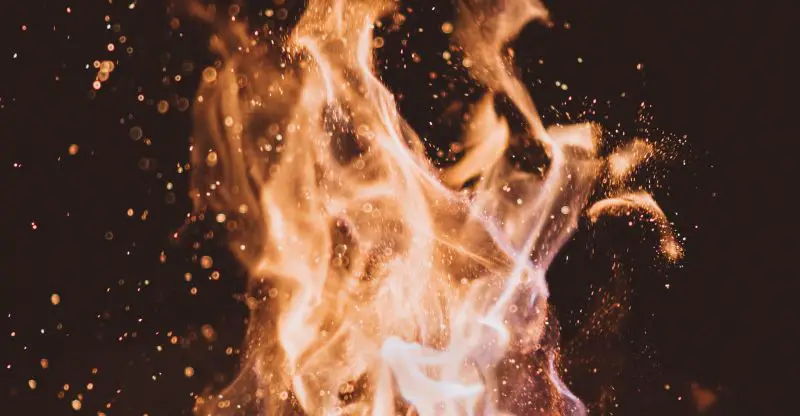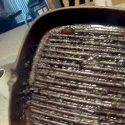How To Stop Flare-Ups On A Gas Grill
Are You Looking for How To Stop Flare-Ups On A Gas Grill?
The aim of each barbecue or smoking endeavor is to create delicious dishes while enjoying the process. Thus, the last thing you desire is to end up discarding a badly burnt piece of meat. It’s reassuring to know that this can be avoided. If the fat or grease drips and overheats, flare-ups on the grill can occur quickly, often within a matter of seconds.
A grill flare-up is more likely to occur while cooking on a charcoal or wood-fueled grill, as they do not often have to drip guards like many gas barbecues. On a gas barbecue, though, flare-ups are still conceivable.
In this post, we’ll go over how to avoid grill flare-ups and how to deal with them if you do happen to have one. Let’s take a closer look:
What Exactly Is A Grill Flare-Up
Grill flare-ups are short bursts of high-intensity flames caused by grease and oil dripping onto hot coals or wood and igniting. A flare-up is not the same as a grease fire. Quick, quick flare-ups caused by little drops are frequent, and they are typically not a concern or anything you need to worry about extinguishing. These frequently occur while placing fatty meat on the grill, such as chicken or steak, or when turning the meat.
If a tiny flare-up occurs, the best thing to do is shift the food to another portion of the grill, and it will usually go down soon. When a minor flare-up goes out of control, it may soon evolve into a grease fire and become a problem. This is mainly because of a buildup of grease and charcoal in the grill.
There are various things you can do to keep grill flare-ups under control.
How To Stop Flare-Ups On A Gas Grill
Proactive practices that help avoid grill flare-ups will save you burnt food, misery, and, in the worst-case scenario, a completely damaged grill. The majority of these practices boil down to preventative maintenance and adequate planning.
Here are some tips for avoiding major grill flare-ups:
- Keep your grill clean – A filthy grill is the number one cause of a rapid flare-up going out of control. Make an effort to deep clean your grill if necessary, and then assist in keeping it clean between cooking. After each cooking session, increase the heat to high and burn off any food residue that has remained on the grates. Scrape up the grates clean with a grill brush or a ball of aluminum foil to eliminate any carbon. You don’t want a buildup of grease and carbon when you want to fire your grill the following time. When cleaning away the ashes from a charcoal barbecue, make sure to scrape out the interior of the grill fully. Also, after each cooking session, make sure to clear up your oil pan. After each session, clean/degrease the drip guards (diffusers) on a gas barbecue.
- Use a two-zone grill arrangement – With a two-zone grill system, one side has the fuel source and is the direct heat side, while the other side is the indirect heat side without the fuel source. So, with a charcoal or wood barbecue, all of the charcoal or wood will be on one side of the grill, resulting in a hot zone and a cold zone. When using a gas grill, turn off half or one burner (depending on the size of the grill). This will establish a safe zone and provide you with a location away from any flare-ups where you may transfer your food and let them die down rapidly.
- Trim away excess fat – Initially, fat and oil leaking is the major cause of grill flare-ups. Trim as much unwanted fat from your meat as possible without compromising too much taste. By removing extra fat, you can help prevent flare-ups from happening.
- Use oil carefully – If you’re going to use oil or marinade, don’t overdo it. When you keep the meat on the grill, be sure it is not leaking.
- Avoid the wind as much as possible – Position your grill to avoid the wind as much as possible. Wind blowing into your grill will quickly fuel the fire and produce greater flare-ups.
- Build the correct size fire – When utilizing charcoal or wood as your fuel source, there is no need to overdo it and generate a massive, highly hot fire. Don’t use an entire large bag of briquettes if you’re only grilling a couple of steaks. Proportion the amount of fuel and the size of the fire to what you’re grilling.
Frequently Asked Questions
What should I spray on the grill for flare-ups?
For flare-ups, you need to have a small bottle of spray in hand while grilling. Moreover, spray a little on the coals in order to cause flare-ups on the grill.
What are the reasons for the gas grill to flare up?
The main reason for flare-ups to occur while grilling is the fat and oil that drips from the food that is grilling. When these fell on the coals, it causes flare-ups which are also known as a grease fires.
Are flare-ups a bad thing?
Flare-ups are good when they are of minimum level. However, big flare ups are dangerous for everyone. This is because no one wants the dangerous fire to occur while grilling. Hence it is important that before grilling your meat, you must remove the extra fat that is the sole reason for the flare-ups.
Why does the grill start to smoke when it is turned on?
Whenever you cook on the grill, every time some food gets splatter around on it. Therefore, the next time when you decide to grill, all that previous buildup starts to burn. Which then gives off a lot of smoke and leaves a pungent smell.
Conclusion
As you can see, it’s critical to incorporate these practices into your regular grilling regimen. But what if there is a big flare-up and you wind up with a grease fire on your hands? learning what to do in the event that something occurs is just as vital as prevention.








